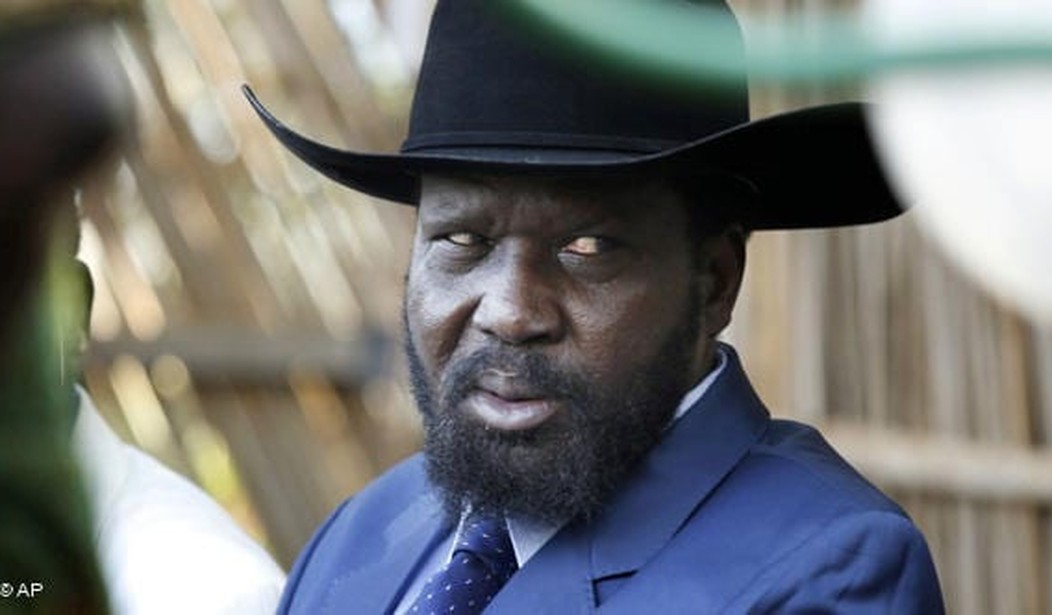WASHINGTON – U.S. government officials told a Senate panel Thursday that millions of dollars in humanitarian assistance could be stopped if the violence between the government and rebels in South Sudan continues.
The Obama administration recently pledged $50 million in humanitarian aid for South Sudan.
“I would suspect that at a point if this violence continues that we would suspend that support,” Linda Thomas-Greenfield, the assistant secretary of State for African affairs, told the Senate Foreign Affairs Committee.
The crisis began on Dec. 15 between forces loyal to President Salva Kiir and his former vice president, Riek Machar, who was dismissed in July. The violence broke out when Kiir accused Machar of trying to stage a coup, which Machar denies.
The United Nations estimates that more than 1,000 people have been killed, and about 200,000 displaced in clashes between the Kiir’s Dinka tribe and Machar’s Nuer group.
“Each day that the conflict continues, the risk of all-out civil war grows,” Thomas-Greenfield said. “There is clear evidence that targeted killings have taken place, with Dinka killing Nuer, and Nuer killing Dinka. Countless civilians, particularly women and children, have become victims.”
Three U.S. aircraft came under fire on Dec. 21 while trying to evacuate Americans from the country. Thomas-Greenfield said the government is currently investigating who shot at the aircraft.
She said staff at the U.S. Embassy in South Sudan is down to “minimal levels,” and measures were in place for a quick evacuation of remaining personnel if needed, but that the embassy will stay open.
The U.S. has organized peace talks between representatives of both sides in Addis Ababa, Ethiopia, and persuaded the UN Security Council last month to approve 5,500 more peacekeepers to South Sudan.
The U.S. special envoy to Sudan and South Sudan, Ambassador Donald Booth, has held several meetings with Kiir and Machar.
The U.S. played a critical role in the creation of the world’s youngest nation, providing hundreds of millions of dollars in aid to the country. In 2011, South Sudan won its independence from Sudan following decades of conflict between the mainly Muslim north and mostly Christian south.
“For 30 years the United States has been supporting the people of South Sudan, even before South Sudan became an entity, supporting their right to exist, their right to freedom of religion, and their fight against the government of Sudan,” Thomas-Greenfield said. “We birthed this nation and there are Americans from all walks of life … who are concerned about what is happening.”
Lawmakers expressed concern about the possibility of human rights violations, and the impact to the region if South Sudan becomes a failed state.
Thomas-Greenfield said the current situation in South Sudan could pose problems for all of its neighbors. In particular, she warned that the conflict could spread to neighboring nations, including Uganda, Ethiopia, Kenya, and Sudan, if they get involved in the conflict.
Almost 39,000 South Sudanese refugees seeking safety have crossed the border into neighboring countries.
“While Uganda, Ethiopia and Kenya are playing important roles, and obviously South Sudan is very important to China, this is a place where obviously people expect us to make a difference,” said Sen. Bob Corker (Tenn.), the top Republican on the panel. He said the U.S. has to put pressure on both sides of the conflict to reach a ceasefire.
Nancy Lindborg, USAID’s top administrator, said current hostilities make certain areas difficult to reach with humanitarian assistance. While plenty of supplies are on the ground, security conditions are preventing international and non-governmental agencies from delivering aid to people in need.
Lindborg said about 40 percent of the country’s 4.4 million people were already in need of aid before the recent violence.
“The lack of roads, the pervasive underdevelopment that already made South Sudan one of the most logistically difficult environments further complicates our work today,” Lindborg said. “So our challenge today is twofold, both respond to the immediate hostility-driven needs, as well as find ways to continue our longstanding work that seeks to assist nearly half the population already in need.”
John Prendergast, co-founder of the Enough Project, an organization focused on ending humanitarian crimes in Sudan, South Sudan, and other African nations, told the committee the U.S. should consider bolstering joint mediation efforts with China.
“Their interests are much deeper than ours are in terms of national security,” Prendergast said.
Thomas-Greenfield said China already “seems to be playing a very positive role in supporting the peace process.”
China is the biggest investor in South Sudan’s oil industry and accounts for 80 percent of the nation’s oil exports. Like the U.S., it has called for an immediate ceasefire, and has sent a special envoy to assist in the negotiations.
South Sudan has sub-Saharan Africa’s largest oil reserves after Nigeria and Angola, according to BP, a British oil company.
The nation’s oil exports have plummeted since the crisis began, and “much of the pumping has ceased” in South Sudanese oil fields, according to Thomas-Greenfield.









Join the conversation as a VIP Member